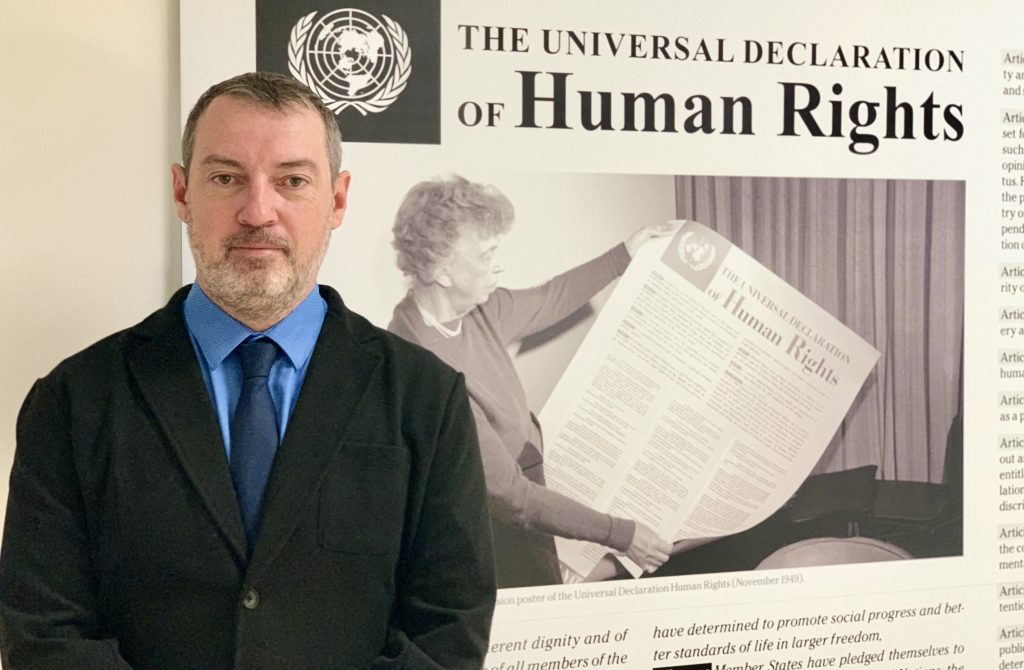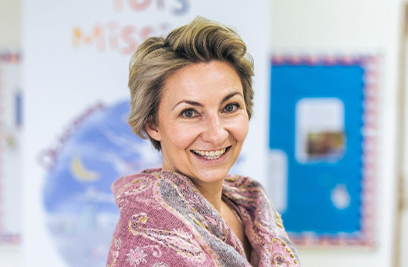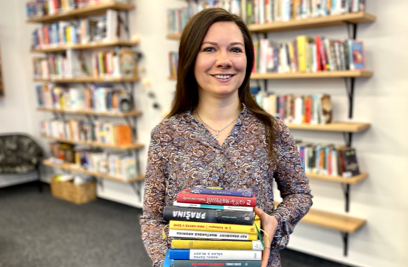
Intercultural understanding, equality and tolerance are key to creating a safe school environment. Secondary School Head Phil Corkill describes how TOIS integrates human rights issues as a basic pillar of the school curriculum.
By Iva Čížková
December 10 is known as Human Rights Day worldwide. What does this day mean for TOIS and you?
The United Nations Declaration of Human Rights is an elegant vision of the kind of world to which we all should aspire, for our children’s sake, wherever we come from in the world.
Fundamental to the evolution of our school has been the regular revision of our school’s purpose and mission. A logical step in that evolution was to place the UN Declaration at the heart of what we do and what we value as a school community.
At TOIS, we are an international community, we stand for international cooperation as the way forward for humanity. The importance of human rights resonates a lot in our community. More than ever, we all can see the challenges to democracy at home and abroad, the pressure for total or extreme “solutions”, greed and exploitation.
Human rights need constant attention and awareness. December 10th is a day of awareness and reflection on human rights and the future of humankind, and a chance to renew our commitment to upholding these principles in our daily lives.
What does this look like in practice?
We strive to have our values and principles permeate through everything we do as a school. In terms of human rights, it begins with a commitment to intercultural understanding, equality and tolerance.
We discourage discrimination of any kind as we welcome families and staff from all over the world. We want to be a safe community, and we place a strong emphasis on the appreciation of both the home country culture and on multilingualism. We strive to be fair, inclusive and transparent in all our school policies and decision making. We respect and actively protect the privacy of all our community members.
Recently, we have been focusing on our own wellbeing, taking steps to ensure a more balanced lifestyle at school, for both students and staff. We have rationalised our timetable to be based on a 7-day cycle, and looked at which areas of the curriculum could be reduced, in order to make more time for deeper understandings and the introduction of new concepts.
In lessons, we try to develop in our students’ compassion for people who are less fortunate and who are experiencing human rights abuses, and we try to develop in students a caring attitude to help them to find ways to take meaningful action in solidarity with others, if they so choose.
We value freedom of speech and everyone’s right to have an opinion, but insist that this is done at school in a balanced manner, with mutual respect, kindness and a constructive approach to problem-solving.
As an IB World School, one of our most important tasks is to help children learn to think critically about the information with which they engage.
At the Secondary School, we have designed a programme in which each of the six classes has time to reflect on five of the thirty Human Rights Articles each year. By the time the students have graduated, they will have engaged with all thirty Articles in the UN Universal Declaration of Human Rights. Students will analyse what each Article means and then produce a piece of work that demonstrates their understanding. On December 10th, we will be launching our “Human Rights Wall” where this work will be displayed for everyone to see.
How big a role does the Student Council play in students’ awareness of human rights?
Our elected Class Presidents and Vice-Presidents play a key role in leading the Human Rights Programme that I described above. If we want tomorrow’s generation of leaders to fight for the implementation of democratic, civic-minded principles in line with the UN Declaration of Human Rights, then the best place to start practising that is as a member of a Student Council.
The Student Council is also very active in preparing students activities, and sharing with us feedback from the student body in a polite, structured, pro-active manner. The input from the Student Councils has helped to lead to genuine change and improvement in our school’s policies, activities and operations.
And finally, a bit of a personal question, what do you like best about your job?
There are many reasons why I love my job. I feel privileged to be part of such a special international community here in Ostrava and part of such a wonderful project, creating the only IB continuum school in the Czech Republic. After seventeen years, it still fascinates and challenges me. It is amazing how much the school has developed. I love working with a fantastic team of expert professionals who inspire me every day in their commitment to building a great school that not only meets, but excels, the rigorous international standards set by the International Baccalaureate, the Council of International Schools (CIS) and the New England Association of Schools and Colleges (NEASC).
I greatly value the trust parents place in me to oversee the well-being and learning of their children. Seeing our students graduate successfully and happily, going to the best universities around the world, fulfilling their potential, becoming truly global citizens, is immensely satisfying.
It is an honour to be a meaningful part of the journeys of these young people. It gives me great hope that the next generation has the knowledge, understanding, skills and attitudes to help make the world a better and more peaceful place, in any way they can.


